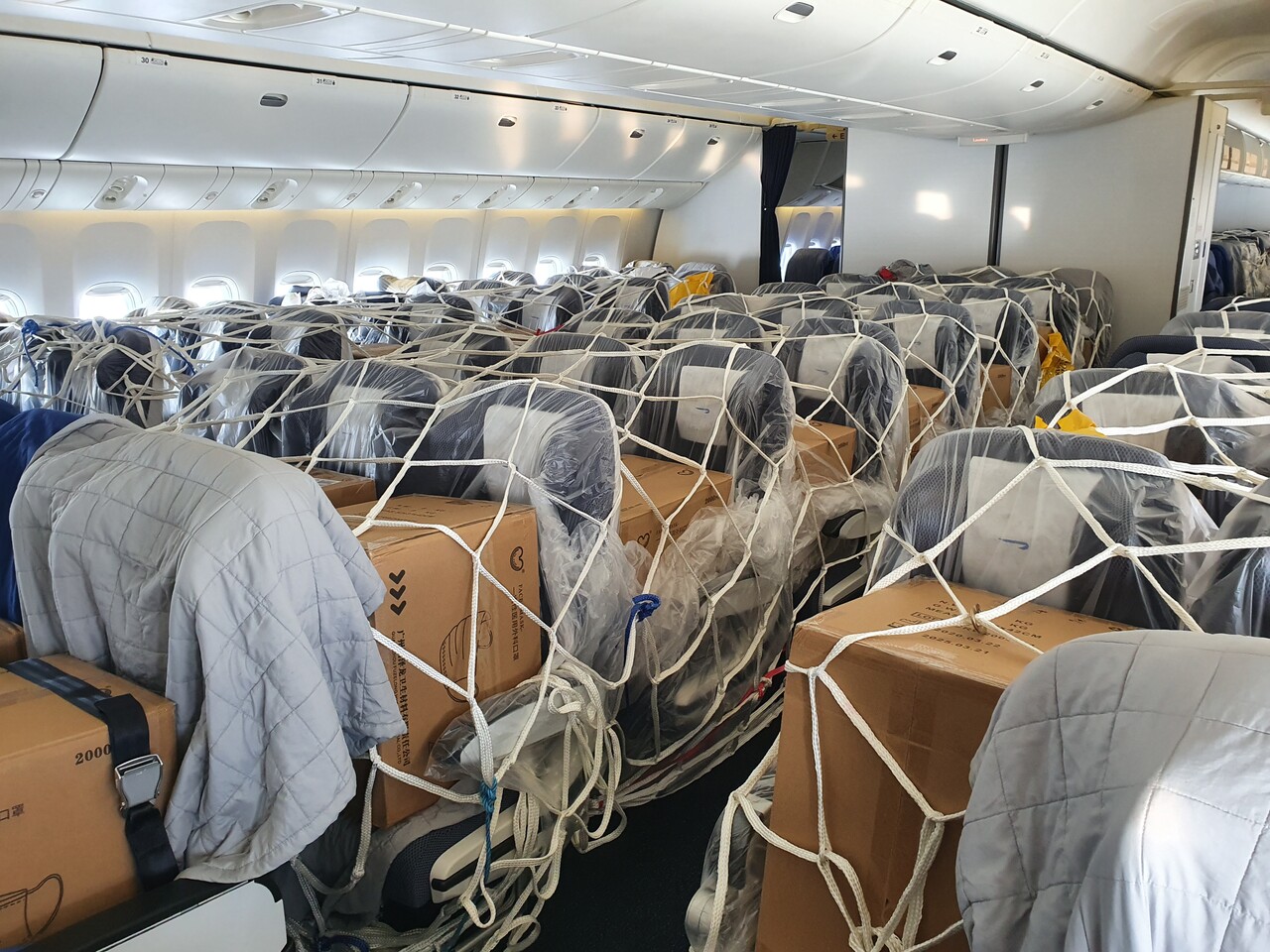
European air safety regulators have decided not to extend a temporary exemption that allowed airlines to load cargo in the passenger cabin of otherwise under-utilised aircraft. The exemption was first granted at the start of the pandemic as governments scrambled to get hold of medical personal protective equipment like face masks and gowns which had to be flown in from Asia at short notice.
The process of using a passenger plane just for cargo is sometimes known as a ‘Preighter’ service because it uses the passenger plane to carry freight. In the early days of the pandemic, freight was strapped to passenger seats and loaded into overhead lockers but many airlines went on to remove entire sections of passenger seats to enable more freight to be carried in the cabin.
Before Preighter services were authorised, there were fears of a supply chain crisis as airlines grounded the vast majority of their normal passenger flights on the back of the first wave of COVID-19 travel restrictions. A lot of International cargo is carried in the belly hold of normal passenger services which meant that capacity to freight capacity dramatically plummeted overnight.
Preighter services went on to be big money spinners for airlines whose day to day operations had been upended by the pandemic. At the height of the pandemic, Dubai-based Emirates even converted some of its double-deck Airbus A380s into what it described as ‘mini freighters’ where entire sections of passenger seats were ripped out to make room for cargo.
The First Class cabin, however, remained installed – not only because it would cost too much money to remove but also because it became the new crew rest area for cabin crew who had to perform ‘fire watch’ duties on cargo carried in the cabin.
“Air cargo services had been vital for the economy and for coping with logistical challenges linked to the COVID-19 pandemic due to the reduction of cargo transported in the holds of passenger commercial planes,” the European Air Safety Agency (EASA) explained in a recent memo.
“During the peak of the pandemic, when almost all long haul operation had been suspended, there was a need to support the logistic chain with a solution to increase the cargo capacity using passenger aircraft to transport cargo on the main deck.”
That is no longer the case, however, as airlines rush to build back passenger capacity lost during the pandemic. Airlines are pressing aircraft back into service and there is now sufficient cargo capacity in the belly hold of normal passenger services.
“Following a review of the operational context for transport of cargo in the passenger cabin, the agency has concluded that the logistical challenges that arose in 2020 as a result of the COVID-19 crisis no longer exist to the same extent,” the agency noted on Monday.
In the U.S., a similar exemption from the Federal Aviation Administration expired at the end of 2021. Preighter services were not as widely used by U.S. airlines as other carriers in Europe and elsewhere.
Mateusz Maszczynski honed his skills as an international flight attendant at the most prominent airline in the Middle East and has been flying ever since... most recently for a well known European airline. Matt is passionate about the aviation industry and has become an expert in passenger experience and human-centric stories. Always keeping an ear close to the ground, Matt's industry insights, analysis and news coverage is frequently relied upon by some of the biggest names in journalism.







